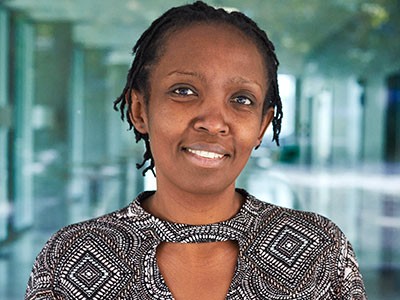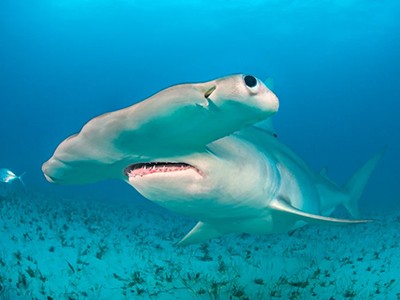[ad_1]
In February, I was meant to speak at the European Conference of Tropical Ecology in Lisbon, providing evidence of extinction risks to some frog species used as bushmeat in West Africa, and highlighting the need for policies that regulate hunting pressures.
In January, I duly applied at the Dutch embassy in Accra for a business visa to the European Union Schengen area. My application included the invitation from the conference organizers, a letter from my sponsors — the Center for International Forestry Research and World Agroforestry, and the UK Global Challenges Research Fund’s Trade, Development and the Environment Hub — and an introductory letter from the dean of graduate studies at the University of Ghana, confirming my status as a final-year PhD candidate. It also included current and old passports that showed my extensive travels, mostly to the United Kingdom.
Tear down visa barriers that block scholarship
Almost three weeks later, my passport was returned with a rejection note, stating that I had not provided justification for the purpose and conditions of my intended stay, and that there were reasonable doubts about my intention to leave the EU before the visa expired.
I wasn’t the only one. Of the ten speakers from low- and middle-income countries (LMICs) invited to present at the conference’s “Wildmeat: opportunities and risks” session, only four got visas. Another person withdrew voluntarily.
The participation of researchers from LMICs at international conferences on biodiversity is of the utmost importance. Earth’s biodiversity is richest in these nations, and includes ecosystems that provide important services, such as carbon sequestration, that benefit people globally. Our participation is not a matter of simply ticking the inclusivity boxes, but a deliberate effort to ensure that the voices of people for whom some of these conservation policies are formulated are heard, and their opinions sought.
However, whereas colleagues from wealthy nations, even as undergraduate students, can easily go to LMICs to participate in conferences and do research, the same cannot be said for those going the other way. The same documentation that scientists from high-income countries present at embassies — sponsorship, invitation and introductory letters — are apparently inadequate when submitted by people from LMICs. According to a global survey in 2018 by the research organization RAND, African and Asian researchers are the most likely to have visa-related challenges for short-term visits (see go.nature.com/2z9dabp). A 2023 analysis by the Royal Society in London showed that in 2022, of the 30 territories for which the United Kingdom refused visitor visas most often, 22 were in Africa (see go.nature.com/3vxruba).
Battles over funding could threaten historic effort to save species
These refusals come at a huge cost to individual researchers. Visa applications require scientists to be studious with paperwork, commit often large sums of money and make several trips to embassies that are sometimes outside their home country. My experience left me feeling demoralized, embarrassed and insulted by the implication that I and people like me couldn’t be trusted to attend a conference without outstaying our welcome.
This broken situation also comes at a cost to institutions. My sponsor spent approximately US$1,500 on my visa fee, return flight, insurance and conference registration (all non-refundable). Conference organizers and host institutions in wealthy countries spend a lot of time and effort searching for and inviting credible and accomplished researchers from LMICs to be part of the global conservation effort — time and money that is often wasted, which then discourages meeting organizers from prioritizing speakers from those nations.
Moreover, it comes at a cost to global efforts to prevent further biodiversity loss. Many high-income countries say that they are committed to global biodiversity conservation, and governments are pledging billions of dollars in support. Their visa policies for researchers should reflect this priority.
It’s time for countries to honour their million-dollar biodiversity pledges
I am not suggesting that embassies should operate without caution and issue visas without due diligence. But they should ensure that eligible candidates who meet the criteria are not prevented from participating in international discourse. This requires a distinct form of short-term visa review for scientists attending conferences, seminars, workshops and research programmes, and a commitment to improve communication channels between visa-issuing authorities, conference organizers and academic institutions, both in the countries hosting the events and in those that researchers are travelling from.
Part of this is ensuring that entry-clearance officers do not fixate on a scientist’s financial worth as a measure of the credibility of their intent to return to their home countries. Bank statements are often required to support visa applications. Mine show the grants I have received from the Rufford Foundation, Synchronicity Earth and the BaNGA-Africa/Carnegie Corporation of New York. Others are not so fortunate, and this approach risks allowing only well-off, established scientists to obtain short-stay visas — automatically preventing many early-career researchers from participating in global research conversations.
Conferences are where research collaborations are formed and where decisions on funding, publishing and policymaking are made. It is imperative that visa issues do not block scientists from LMICs benefiting from the opportunities they provide.
Competing Interests
The author declares no competing interests.
[ad_2]
Source Article Link




